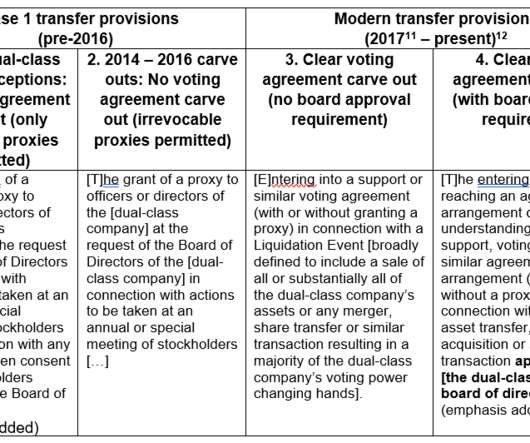Disloyal Managers and Shareholders’ Wealth
Harvard Corporate Governance
MAY 30, 2023
Fich (Drexel University), Jarrad Harford (University of Washington), and Anh L. Tran is a Professor of Finance at City University of London Bayes School of Business. Posted by Elierzer M. This post is based on their article forthcoming in the Review of Financial Studies. discussed on the Forum here ) by Holger Spamann.















Let's personalize your content